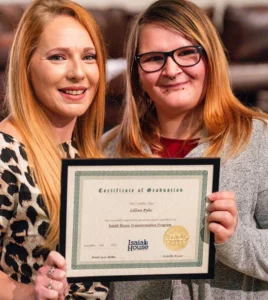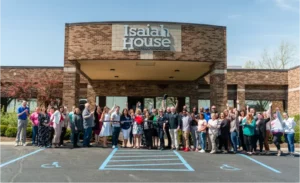If you’re seeking drug rehab treatment for yourself or a loved one, you probably have a lot of questions. How do drug rehab centers work? What can you expect during treatment? This blog post will describe some of the services that drug rehab facilities provide. We’ll discuss what happens during treatment, and explain the different types of therapies offered at most drug rehab facilities.
Detoxification at drug rehab centers
The first step in treatment at many drug rehab centers is detoxification. Detoxification is the process of removing drug toxins from the body. Some drug rehab centers also offer detox services in an inpatient setting, where patients can receive around-the-clock care.
The detox process is an important step on the road to recovery. Withdrawal symptoms can be uncomfortable, but with the right medical attention, they do subside over time. With the help of medication and therapy, patients are able to successfully detox from the substances.
Medication-assisted treatment at drug rehab centers
Many drug rehab centers offer medication-assisted treatment for drug detox. This type of treatment uses medications to help patients manage withdrawal symptoms and cravings for opioid use disorder. There are a variety of FDA-approved medications that can be used in medication-assisted treatment, including buprenorphine, naltrexone, and methadone.
These medications can be very helpful in managing addiction and helping patients detox from drugs safely and comfortably. However, it is important to consult with a doctor before starting any type of medication-assisted treatment.
At Isaiah House, we use medication-assisted treatment alongside counseling and behavioral therapies to provide a “whole patient” approach to substance use disorder.
Therapy at drug rehab facilities
Once the detox process is complete, patients typically begin a course of therapy. There are many different types of therapy, and each drug rehab center will offer a variety of therapies to suit the needs of their patients. Some of the most common types of therapy include individual therapy, group therapy, cognitive-behavioral therapy, and motivational interviewing.
Individual therapy
In individual therapy, you work one-on-one with a therapist to discuss your addiction and work on strategies for overcoming it.
One of the main benefits of individual therapy is that you can get personalized attention from a therapist. This therapist can help you work through your addiction and give you support and guidance throughout the rehab process. Additionally, individual therapy can help you develop better coping skills and learn how to deal with difficult emotions in a healthy way.
Group therapy
Group therapy is often used in drug rehab programs. It can be a great way to provide peer support for people who are trying to get sober. Group therapy can also help people learn how to deal with difficult emotions and behaviors through the therapist’s guidance.
In group therapy, a clinician leads conversation allowing people to share their experiences and feelings in a group setting. This can be helpful because it allows people to see that they are not alone in their struggles. It can also be a way to get feedback and advice from others who have been through similar things.
Group therapy can be very rewarding. It is a great way to build relationships and connect with others in a meaningful way.
Cognitive-behavioral therapy
Cognitive-behavioral therapy (CBT) is a type of psychotherapy that is often used to treat drug addiction. CBT helps people become aware of their thoughts and feelings, and how they influence their behaviors. It also teaches people how to change the way they think and behave in order to achieve their goals.
CBT can be helpful for drug rehab because it helps people understand why they became addicted in the first place, and it teaches them how to stay sober in the future. CBT can also help people manage any associated mental health issues, such as depression or anxiety.
Motivational interviewing
Motivational interviewing (MI) is a counseling style used to help people change their behavior. It is based on the idea that people are more likely to make changes if they are motivated to do so. MI helps counselors to understand and respect the person’s own motivations, and to support them in making changes.
MI is often used in drug rehab programs. It can be helpful for people who are trying to overcome addiction, as well as for those who are trying to stay sober. MI can help people to develop the motivation they need to make changes in their lives, and it can also help them to stay on track once they have started treatment.
Recovery support
Recovery support is an important part of drug rehab treatment. Most drug rehab centers offer Aftercare services, which provide patients with support and resources after they leave treatment. This can include continuum of care which includes 12-step programs, and sober living facilities.
At Isaiah House, we guarantee the opportunity of full-time employment after 90 days of treatment to our clients who are in our long-term recovery program. Gainful employment is an important step in recovery as patients apply recovery skills to real-life situations.
Isaiah House | Drug rehab center
If you or someone you love is struggling with addiction, know that help is available. Drug rehab centers like Isaiah House offer hope and healing to those who are ready to start their journey to recovery. If you have any questions about drug rehab centers or treatment options, please don’t hesitate to reach out for help. We’re here to help you every step of the way.




